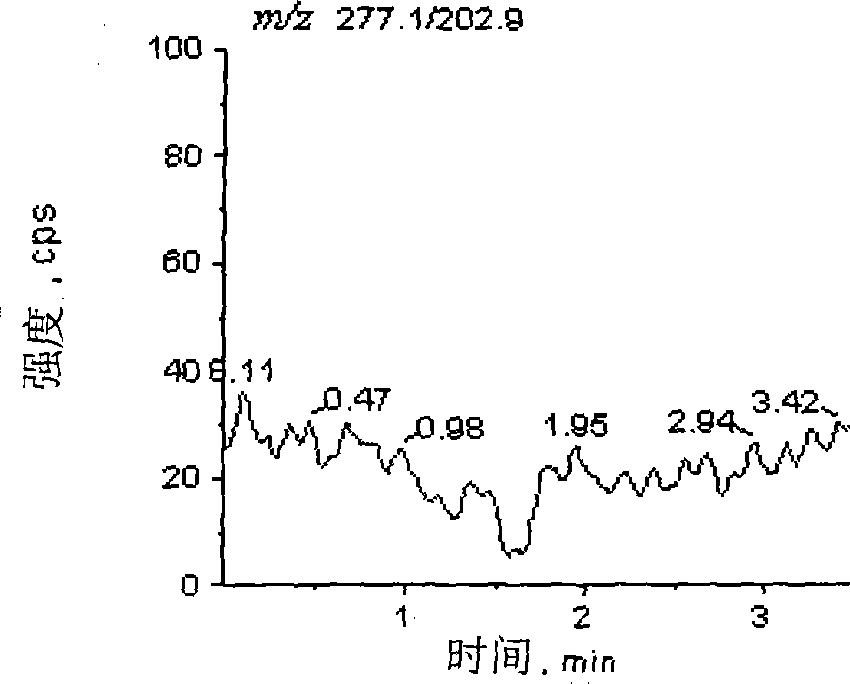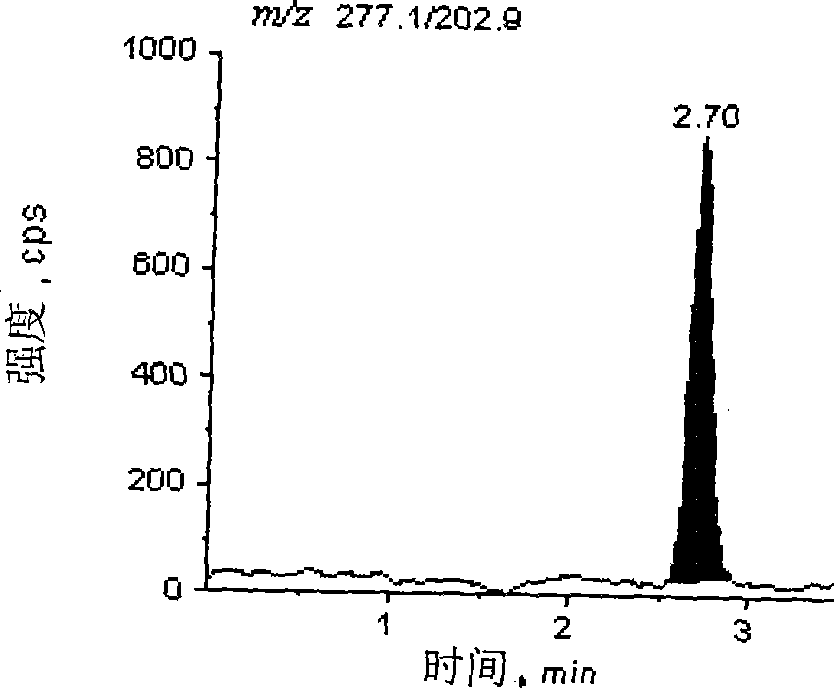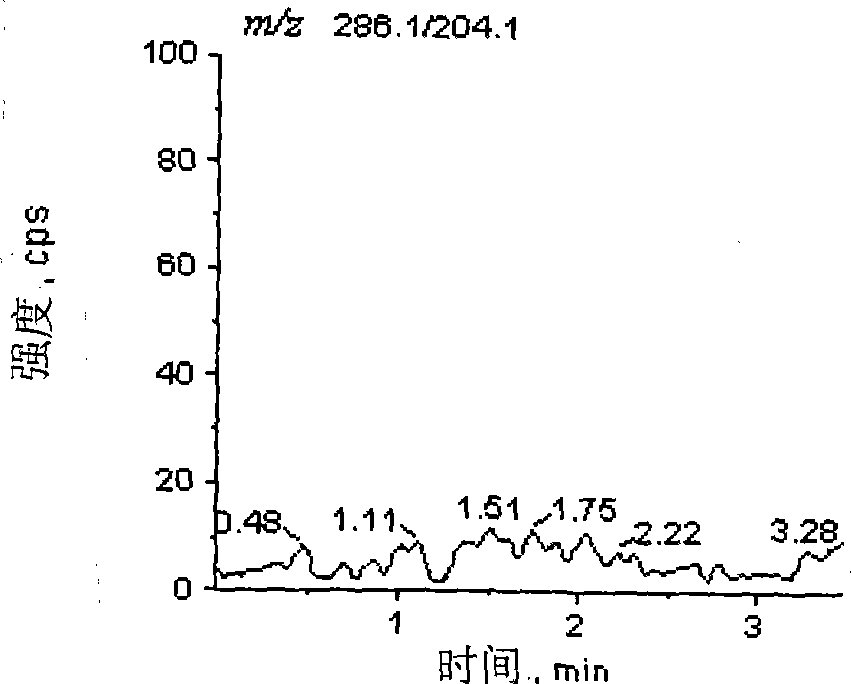Method for detecting Clenbuterol residual quantity in hair
A residue and hair technology, applied in measurement devices, instruments, scientific instruments, etc., can solve the problems of low detection sensitivity and specificity, complicated sample processing process, limiting clenbuterol residues, etc., to achieve easy, accurate and reliable sampling. Qualitative and quantitative detection, the effect of shortening time
- Summary
- Abstract
- Description
- Claims
- Application Information
AI Technical Summary
Problems solved by technology
Method used
Image
Examples
Embodiment 1
[0033] Example 1 Pig hair sample pretreatment method
[0034]One case of negative blank pig hair and three cases of positive pig hair collected from pigs suspected to have been fed clenbuterol in a slaughterhouse, the hair samples were washed with water and methanol respectively, dried at room temperature, and then shredded to 2- 3mm fragments. Take 50mg of hair into a centrifuge tube, add 50μl of 25ng / ml internal standard working solution and 0.5ml of 2mol / L sodium hydroxide solution, vortex and mix for 1min, heat in a water bath at 90°C for 10min, take it out, add excess Na2SO4 solid, mix well, add 2.5ml diethyl ether, vortex for 5min, centrifuge at 15,000×g for 10min; absorb the upper organic phase, add 100μl of 2% (v / v) formic acid solution, vortex for 5min, centrifuge at 15,000×g for 10min; absorb the lower aqueous phase, transfer to injection vial injection.
Embodiment 2
[0035] Another pretreatment method of embodiment 2 pig hair sample
[0036] In addition, 1 case of negative blank pig hair and 3 cases of positive pig hair in Example 1 were taken, washed with water and dichloromethane respectively, dried at room temperature, and then cut into fragments of 2-3 mm. Take 50mg of hair into a centrifuge tube, add 50μl of 25ng / ml internal standard working solution, and 1ml of 1mol / L potassium hydroxide solution, vortex and mix for 1min, heat in a water bath at 65°C for 15min, take it out, add excess NaCl solid, and mix well , add 2ml tert-butyl methyl ether, vortex for 5min, centrifuge at 15,000×g for 10min; absorb the upper organic phase, add 100μl 5% (v / v) acetic acid solution, vortex for 5min, centrifuge at 15,000×g for 10min; absorb the lower aqueous phase, transfer To the vial for injection.
Embodiment 3
[0037] Embodiment 3 Yet another pretreatment method of pig hair sample
[0038] Another negative blank and 3 positive pig hairs in Example 1 were taken, washed with water and 0.01mol / L dilute hydrochloric acid respectively, dried at room temperature, and then cut into fragments of 2-3 mm. Take 50mg of hair into a centrifuge tube, add 50μl of 25ng / ml internal standard working solution, 1ml of concentrated ammonia solution (25-28%, v / v), vortex and mix for 1min, heat in a water bath at 90°C for 15min, take it out, and add excess Na 2 SO 4 Solid, mix well, add 2ml of dichloromethane, vortex for 5min, centrifuge at 15,000×g for 10min; absorb the upper organic phase, add 200μl 0.5% (v / v) formic acid solution, vortex for 5min, centrifuge at 15,000×g for 10min; absorb the lower layer The aqueous phase was transferred to a vial for injection.
[0039] For the samples processed by the three pig hair sample processing methods in Examples 1, 2, and 3, the clenbuterol residue in the hai...
PUM
| Property | Measurement | Unit |
|---|---|---|
| length | aaaaa | aaaaa |
Abstract
Description
Claims
Application Information
 Login to View More
Login to View More - R&D
- Intellectual Property
- Life Sciences
- Materials
- Tech Scout
- Unparalleled Data Quality
- Higher Quality Content
- 60% Fewer Hallucinations
Browse by: Latest US Patents, China's latest patents, Technical Efficacy Thesaurus, Application Domain, Technology Topic, Popular Technical Reports.
© 2025 PatSnap. All rights reserved.Legal|Privacy policy|Modern Slavery Act Transparency Statement|Sitemap|About US| Contact US: help@patsnap.com



